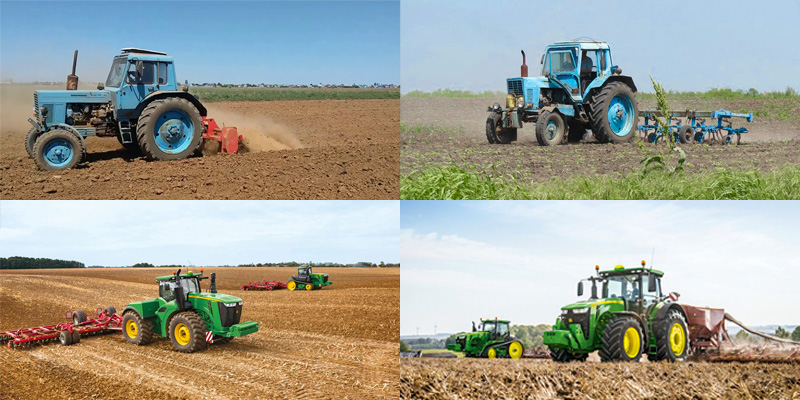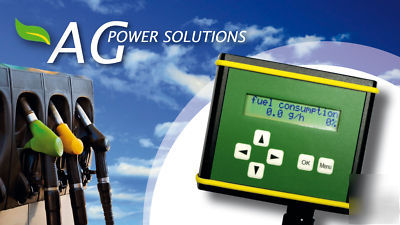Fuel Consumption in John Deere Tractors: A Comprehensive Look
Fuel Consumption in John Deere Tractors: A Comprehensive Look
Introduction
In this auspicious occasion, we are delighted to delve into the intriguing topic related to Fuel Consumption in John Deere Tractors: A Comprehensive Look. Let’s weave interesting information and offer fresh perspectives to the readers.
Table of Content
Fuel Consumption in John Deere Tractors: A Comprehensive Look

John Deere tractors, renowned for their durability and efficiency, are a staple in the agricultural industry. Understanding their fuel consumption is crucial for optimizing operations, managing costs, and ensuring environmental sustainability. While a definitive answer to the question of how much fuel a John Deere tractor uses is impossible without specific details, this article provides a comprehensive overview of the factors influencing fuel consumption and offers insights into estimating and optimizing fuel efficiency.
Factors Influencing Fuel Consumption:
Several factors contribute to the fuel consumption of a John Deere tractor, making it challenging to provide a universal figure. These factors include:
- Engine Size and Horsepower: Larger engines with higher horsepower naturally consume more fuel. A 100-horsepower tractor will generally use less fuel than a 200-horsepower tractor performing the same task.
- Transmission Type: Tractors with more advanced transmissions, such as powershift or continuously variable transmissions (CVT), can offer improved fuel efficiency compared to traditional manual transmissions.
- Implement Type and Size: The implement attached to the tractor, whether a plow, cultivator, or mower, significantly impacts fuel consumption. Heavier implements and those requiring higher power demand consume more fuel.
- Operating Conditions: Terrain, soil type, and weather conditions all play a role. Working on hilly terrain or in heavy, wet soil requires more power and thus higher fuel consumption.
- Operator Skill and Habits: An experienced operator can optimize fuel efficiency through proper throttle management, using the right gear, and minimizing idling time.
- Maintenance and Condition: Regular maintenance, including engine tune-ups and proper tire inflation, ensures optimal engine performance and reduces fuel consumption.
Estimating Fuel Consumption:
While a precise fuel consumption figure is difficult to determine without specific data, several methods can provide estimations:
- Manufacturer Specifications: John Deere provides fuel consumption data for their tractors under specific operating conditions in their manuals and technical documentation. This data can be a starting point for estimations.
- Fuel Gauges and Meters: Modern tractors are equipped with fuel gauges and meters that provide real-time information on fuel consumption. This data can be used to track fuel usage and identify areas for improvement.
- Fuel Consumption Calculators: Online calculators and software tools are available that allow users to estimate fuel consumption based on tractor model, implement type, operating conditions, and other factors.
Optimizing Fuel Efficiency:
Optimizing fuel efficiency is essential for minimizing costs and reducing environmental impact. Here are some tips for improving fuel consumption in John Deere tractors:
- Match Engine Power to Load: Avoid running the engine at high RPMs when a lower power setting is sufficient.
- Use the Correct Gear: Selecting the appropriate gear for the task minimizes engine strain and fuel consumption.
- Minimize Idling: Minimize idling time by turning off the engine when not in use.
- Proper Tire Inflation: Underinflated tires increase rolling resistance, leading to higher fuel consumption.
- Regular Maintenance: Regular maintenance, including engine tune-ups, oil changes, and filter replacements, optimizes engine performance and fuel efficiency.
- Implement Optimization: Select implements that are appropriate for the task and minimize their size and weight where possible.
FAQs on Fuel Consumption in John Deere Tractors:
Q: What is the average fuel consumption of a John Deere tractor?
A: There is no single average fuel consumption figure for John Deere tractors. Fuel consumption varies significantly based on the factors mentioned above.
Q: How can I track fuel consumption in my John Deere tractor?
A: Modern John Deere tractors often have built-in fuel consumption monitors. You can also use aftermarket fuel gauges or track fuel usage manually by noting the fuel level at the start and end of each work session.
Q: How can I reduce fuel consumption in my John Deere tractor?
A: Refer to the tips provided above for optimizing fuel efficiency.
Conclusion:
Understanding the factors influencing fuel consumption in John Deere tractors is crucial for optimizing operations, managing costs, and contributing to a sustainable agricultural industry. By applying the tips and strategies discussed, farmers and operators can significantly improve fuel efficiency, minimizing environmental impact and maximizing profitability. While a definitive answer to the question of how much fuel a John Deere tractor uses is impossible without specific details, this comprehensive overview provides valuable insights into estimating and optimizing fuel consumption in these powerful machines.








Closure
Thus, we hope this article has provided valuable insights into Fuel Consumption in John Deere Tractors: A Comprehensive Look. We appreciate your attention to our article. See you in our next article!